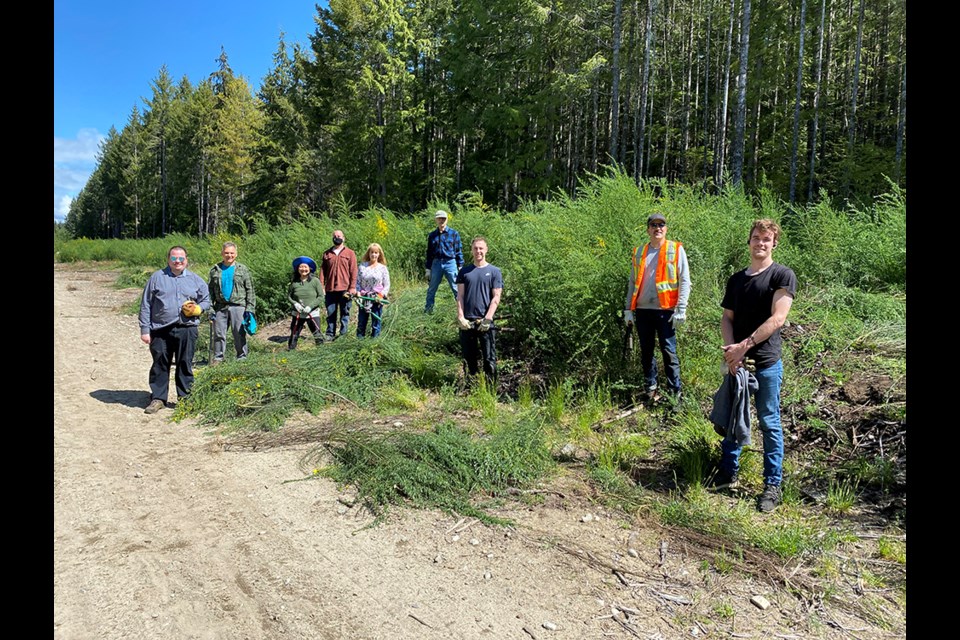Local BroomBusters, along with Powell River residents who live near the Penticton trails, recently came together to remove Scotch broom from the area. In a few short weeks, by doing only a few hours on the weekends, the BroomBusters completely rid the Manson connector of the invasive plant.
“People of all ages came out in their own groups, and the theme was to keep a ‘broom handle’ apart,” said Powell River Fire Rescue chief Terry Peters, who heads up the local BroomBusters with the help of other BroomBusters groups on Vancouver Island.
“It was a great way to get outside and be part of a solution to combat an invasive species and keep our trails fire smart at the same time,” he added. “Scotch broom is a noxious plant that is listed on the BC invasive species list and is known to be highly flammable. It also crowds out native plant growth and forests, leading to a dramatic loss in diversity.”
City crews are supporting the cause and have already picked up the piles and hauled away seven dump truck loads.
Peters said it is amazing how local volunteers are making a difference in combating the flammable plant. Wiping it out of the community has become addicting to some, he added.
“The motivation is just getting started and already a noticeable difference is being seen from Saltery Bay to Lund,” said Peters. “Unfortunately, the largest problem facing Powell River is local development sites and vacant lots that have cleared property and not maintained the land where Scotch broom has taken hold, making a yellow forest this time of year."
Every large plant can produce up to 18,000 seeds, according to Peters.
“You don’t have to do the math to see how much that will spread if not stopped before the seed pods are formed,” he said. “The old saying of ‘an ounce of prevention to a pound of pain’ applies here."
Peters said it is disheartening to see this, particularly when the fire hazard alone is so high.
“All that would have had to be done is hydroseeding with grass to shade out growth or making an effort to maintain the property for the benefit of the community by simply pulling the small plants before they become too large,” he added. “What’s even worse is if the soil is later transported away from a property, then you are contaminating other sites and the vicious cycle begins again.”
BroomBusters are volunteers who are making a difference and encouraging people to do the same, and the time to cut is now, said Peters.
“Every plant cut will make a difference,” he added. “Check out broombusters.org for more information and do your part to make a difference. Focus on your own neighbourhood first and only do it for a few hours as the goal is for it to be fun, not work.”
Residents who wish to branch out are invited to email [email protected] to get on the mail-out list of local cuts and be part of the solution and part of an invasive-free community effort.
For more information, go to firesmartcanada.ca, firesmartbc.ca, facebook.com/PowellRiverFireRescue, and/or bcinvasives.ca.


